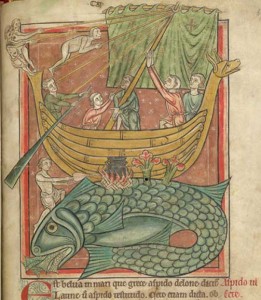Dickinson students are encouraged to apply for any of three 8-week paid research internships in Classical Studies in summer 2016 (the second of these positions is contingent on a pending funding decision by the Dickinson Research and Development Committee). The pay is $350 per week, plus housing on Dickinson’s campus. The work will be carried out under the supervision of Prof. Francese, and result in substantial credited contributions to the Dickinson College Commentaries and Dickinson Classics Online Projects.
Dates: May 30–July 22, 2016
Location: Carlisle, PA
Application deadline: March 11, 2016
Positions 1 and 2 Description: Digital Latin-Chinese Lexicon
Work on the digitization of the Latin-Chinese dictionary of Joaquim-Affonso Gonçalves (Lexicon magnum: latino-sinicum 1841, 779 pp.), which will eventually result in a mobile application, and a database that will form an essential part of the infrastructure of the project Dickinson Classics Online. Begun in 2015, DCO is intended to provide better access to the Greco-Roman classics to Chinese speakers. One student (position 1) will edit Gonçalves’ Chinese definitions to make sure they are properly transcribed and modernized; the other (position 2) will edit the Latin headwords to make them correspond to those of the base dictionary published by the Laboratoire d’Analyse Statistique des Langues Anciennes (LASLA). In many cases Goncalves’ headwords will have to be split or combined to conform to the LASLA headwords, and in every case the format of the Latin headwords will have to be expanded to meet modern lexicographical standards.
Positions 1 and 2 Requirements
Position 1 requirements:
- strong written Chinese, familiarity with both classical and simplified characters
- attention to detail
- interest in languages
- facility with Excel
Position 2 requirements:
- upper-intermediate or advanced Latin
- attention to detail
- interest in languages
- facility with Excel
Positions 1 and 2 Schedule
Week 1 (May 30-June 3): orientation to the project:
- The basics of Latin lexicography, and the similarities and differences between existing dictionaries and their source material
- Introduction to primary resources that will be used in this project: Joseph Denooz, Nouveau lexique fréquentiel de latin, Logeion, and Goncalves’ Lexicon Magnum Latino-Sinicum.
- Explanation of LASLA’s working methods and their style of lemmata
- Examination of the LASLA list of homonyms, and explanation of their labeling conventions and French abbreviations
- Practice creating dictionary forms in Excel in the existing DCC style, based on
- LASLA lemma
- Goncalves’ lemma
- Lemmas available in Logeion, especially Woordenboek Latijn/Nederlands (2011)
- Practice typing Latin characters with macra (long marks over vowels) using the Maiori keyboard in Windows, and explanation of where that is necessary, and where to find accurate information about vowel quantity
- Analysis of the Chinese OCR to determine the extent of the revisions needed to modernize it
- Practice editing Chinese definitions to conform with edited Latin lemmata, splitting and combining as needed.
- Practice formatting Chinese definitions to include Latin idioms as in Goncalves
Weeks 3-8: work on creating the database, going alphabetically.
Position 3 Description: Multimedia Edition of the Aeneid
Work on a forthcoming DCC multimedia edition of the Aeneid, which will include
- Notes, drawn mostly from older school editions, that elucidate the language and the context
- Images, art, and illustrations, annotated to make clear how they relate to the text
- Complete running vocabulary lists for the whole poem
- Audio recordings of the Latin read aloud, and videos of the scansion
- A full Vergilian lexicon based on that of Henry Frieze
- Recordings of Renaissance music on texts from the Aeneid
- Comprehensive linking to Allen & Greenough’s Latin Grammar
- Comprehensive linking to Pleiades for all places mentioned in the text
Positions 3 requirements:
- familiarity with the Aeneid in Latin
- attention to detail
- familiarity with Adobe Photoshop
Position 3 Schedule
- Weeks 1–3: gathering, editing, and posting of images medieval manuscripts of the Aeneid
- Weeks 4–5: transcription, upload, and linking of Aeneid scholarship excerpts
- Weeks 6–8: creation of RDF file for linked data synching with Pelagios Project, for all places mentioned in the notes
TO APPLY: please send a letter of interest with a curriculum vitae to francese@dickinson.edu by March 11, 2016


